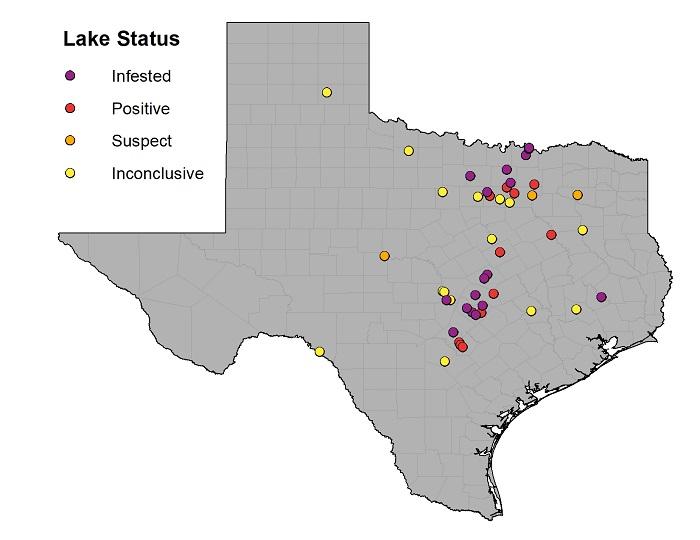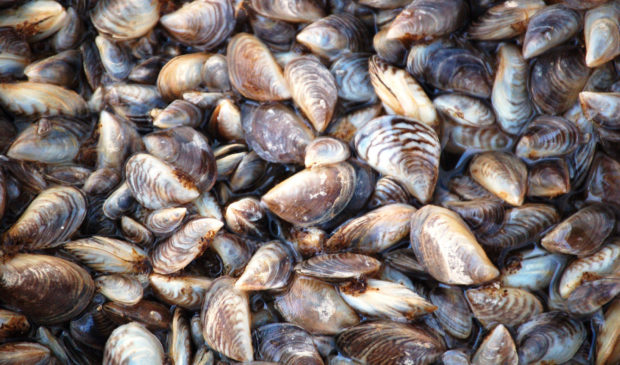Zebra mussels have muscled their way into Lakes LBJ and Pflugerville
Tuesday, August 13, 2019 by
Andrew Weber, KUT The Texas Parks and Wildlife Department announced Monday that reproducing populations of zebra mussels have been found in lakes Lyndon B. Johnson and Pflugerville, bringing the number of statewide lakes infested with the invasive species to 17.
In Central Texas, reproducing populations of the mussels have infested lakes Austin, Belton, Canyon, Georgetown, Lady Bird, LBJ, Pflugerville, Stillhouse Hollow and Travis. Biologists have also found larval mussels in Central Texas at lakes Dunlap, Granger, Placid and Walter E. Long, also known as Decker Lake.
The parks department classifies zebra mussels as invasive because of their ability to aggressively siphon nutrients in waterways and kill native plant matter. Their sharp, fingernail-sized shells are known to harm unsuspecting swimmers.
The department said the presence of zebra mussels in Lake LBJ, near Horseshoe Bay, suggests the mollusks will likely spread to Lake Marble Falls. Monica McGarrity, a senior researcher for the department’s aquatic invasive species management program, said the mussels will likely spread throughout the Highland Lakes, the chain of lakes that supplies Austin’s water.
“It is disheartening to see zebra mussels spreading higher up the chain of the Highland Lakes in the Colorado River basin,” she said. “Only boats can move this invasive species upstream to uninvaded reservoirs and downstream dispersal is inevitable.”
The fact that the mussels headed upstream, McGarrity said, means Inks and Buchanan lakes, which are farther up the Highland Lakes chain, could also soon see populations of zebra mussels.

The invasive mollusks were first found in Lake Texoma in 2009.
Austinites will remember zebra mussels for their ability to clog water intake pipes. The mollusks did just that earlier this year, clogging pipes at the Ullrich Water Treatment Plant on the Colorado River and making Austin’s water smell bad.
This story was produced as part of the Austin Monitor’s reporting partnership with KUT.
Photo by U.S. Fish and Wildlife Department map by Texas Parks and Wildlife Department.
The Austin Monitor’s work is made possible by donations from the community. Though our reporting covers donors from time to time, we are careful to keep business and editorial efforts separate while maintaining transparency. A complete list of donors is available here, and our code of ethics is explained here.
You're a community leader
And we’re honored you look to us for serious, in-depth news. You know a strong community needs local and dedicated watchdog reporting. We’re here for you and that won’t change. Now will you take the powerful next step and support our nonprofit news organization?




